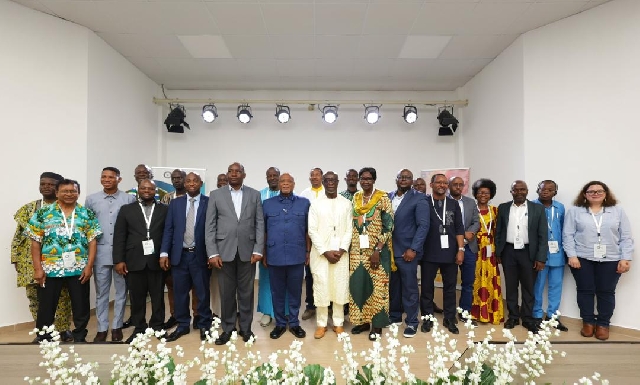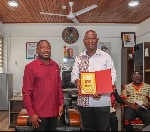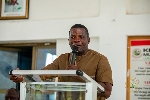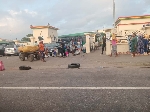Vice-President calls for continental academic body to defend university autonomy in Africa
 Stakeholders at the event
Stakeholders at the event
In a powerful address at the opening of the African Congress of Academic Freedoms (ACAF) conference, the Vice-President of the Republic, Prof Jane Naana Opoku-Agyemang, has issued a rallying cry for the establishment of a continental body to represent academics and safeguard intellectual freedom across Africa.
The conference, themed “Safeguarding Academic Freedom in Africa: A Continental Dialogue for Collective Action,” has brought together 44 Academic Staff Associations (ASAs) from across the continent at the West African Genetic Medicine Centre (WAGMC), University of Ghana, Legon, from 12th to 14th November 2025.
Drawing on her experience as a former Vice-Chancellor, the Vice-President traced the evolution of ASAs from their initial focus on “bread and butter” welfare issues to becoming bastions of academic freedom, particularly during the eras of one-party and military rule in the 1970s to 1990s.
She highlighted the landmark Dar es Salaam Declaration of 1990 and the Kampala Declaration as pivotal moments where African scholars formally linked the struggle for university autonomy to wider popular struggles for democracy and human rights.
“The participation of the academic community in the struggle of their people is inseparably linked with the struggle for the autonomy of institutions of higher education and the freedom to pursue knowledge without let, hindrance and interference from persons in authority,” she stated, quoting the historic Dar es Salaam Declaration.
The Vice-President pointed to Ghana’s own recent battle against the Public University Bill in 2018 as a stark example of ongoing threats to institutional autonomy.
She reminded the audience of her own public opposition to the bill, which she said would have given a sitting president the power to appoint and fire vice-chancellors.
“A bill that will give the President the power to appoint and fire a vice-chancellor, or allow the sector minister to give policy direction to universities, which will have to be complied with; has no business being considered for passage into law,” she asserted, noting the successful resistance by the academic community that prevented its passage.
To fortify these gains, the Vice-President proposed two key areas for action. First, she urged ASAs to focus on leadership development within public universities to promote democratisation.
Second, she championed constructive dialogue between academics, government, and university management to align perceptions of the university’s mission.
Crucially, she identified a major structural gap in the African academic landscape: “The lack of a continental body to represent the interests of academics before the African Union and its human rights bodies such as the African Commission and the African Court on Human and Peoples’ Rights constitutes a major gap.”
In closing, she commended the ACAF for its initiative, signalling that a coordinated, continental defense of academic freedom is not just necessary, but is now firmly on the agenda.
Source: Classfmonline.com/Cecil Mensah
Trending News

Regulator shuts down Tamale Technical University Hospital over safety breaches
10:20
The Challenged Foundation calls for full implementation of disability laws across Ghana
07:05
Ga-Dangme Lands Administration to renew expired land leases — King Ayi Tunnmaa II
09:22
Mfantsipim @150: Anniversary Planning Committee pays courtesy call on Cape Coast MCE
11:12
Ketu North MCE condemns violence in Ehi leading to death of one, police station torched by youth
18:56
Aayalolo Ag. MD averts sit-down strike after drivers' assault by AMA boss’ entourage
10:20
W/R: Wassa communities cry for basic social amenities
06:57
Police launch manhunt for suspect Mark Agingre over multiple murders in Upper East Region
09:09
Bono: Eight-month pregnant woman found dead on farm at Yawusukrom
11:01
Church of Pentecost says prisons are kingdom rehabilitation centres as Damongo Camp Prison commissioned
18:48



